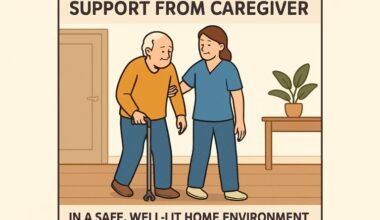For millions of people, rent is their most significant monthly expense—and it’s only getting higher. Urban living often comes at a steep cost, especially when most of your paycheck disappears before the month even begins. If you’ve ever found yourself asking, “Where is all my money going?” the answer may be hiding in plain sight: your zip code.
However, here’s the good news—changing your location could be one of the fastest ways to improve your finances. A strategic move doesn’t just lower your monthly bills; it can also reset your entire cost of living. Let’s explore how making this one change can lead to significant savings—and what steps to take if you’re ready to take action.
Step 1: Planning Your Move
Before you start packing boxes, it’s essential to have a plan in place. Moving can help you save money, but only if you prepare thoughtfully. This section walks through the critical early steps to ensure your move sets you up for financial success.
Assess Your Current Rent Burden
Start by calculating how much of your monthly income goes toward rent. Most financial experts recommend keeping this figure below 30%. In major cities, it’s not uncommon for renters to spend 40–50% of their income on housing alone. That leaves little room for savings, emergencies, or long-term planning.
If you’re above the 30% threshold, that’s a clear signal that it’s time to look elsewhere.
Research More Affordable Areas
Not all cities are created equal. Use online cost-of-living calculators to compare your current city to potential alternatives. Consider small towns, suburbs, or emerging mid-sized cities that offer a lower cost of living without compromising quality of life. If your job is remote, your options are even broader.
Also consider proximity to essential amenities, such as grocery stores, healthcare facilities, internet access, and public transportation. Cheap doesn’t always mean livable, but affordable and practical is the goal.
Declutter and Downsize
This is a prime opportunity to lighten your load. The fewer things you own, the cheaper and easier your move will be. Sell furniture you don’t love. Donate clothes you haven’t worn in a year. Recycle that stack of cords and chargers.
You’ll save on truck space—and your future self will thank you.
Coordinate the Logistics
Give your current landlord written notice in advance. Schedule your move for mid-week or mid-month, when demand (and prices) are lower. Hire a reliable moving company to avoid delays, damages, or hidden costs that can throw off your budget. Line up any required documents for your new place, such as proof of income or references. The smoother your transition, the faster you’ll begin to reap the benefits.
How Relocating Can Boost Your Savings Instantly
When you relocate to a lower-cost area, the impact on your bottom line is often immediate. It’s not uncommon to save hundreds—or even over $1,000—per month on rent alone.
Let’s say you’re paying $2,300 in rent in a metro area. Moving to a nearby suburb could cut that figure to $1,600 or less. That’s $700 in savings each month, or $8,400 a year. Over five years? More than $40,000 back in your pocket. That’s money that can be used to pay off debt, build an emergency fund, or invest for the future.
And it’s not just rent. You’ll likely spend less on car insurance, groceries, gym memberships, and entertainment. Even things like parking tickets and late-night delivery fees tend to shrink.
Hidden Perks of Moving to a Cheaper Location
There’s a financial benefit to relocating, but the lifestyle improvements may surprise you as well.
More Space, Less Stress
Many affordable areas offer more square footage for a lower price. That means a dedicated office, a real kitchen, or even a backyard. When you’re not tripping over your belongings, daily life gets simpler.
Slower Pace, Better Balance
Smaller towns often have a slower rhythm. Less traffic, fewer lines, more room to breathe. For some, that adds up to better sleep, healthier routines, and improved mental clarity.
A Stronger Sense of Community
In lower-cost areas, it’s often easier to meet people, get involved, and find a sense of belonging. Local libraries, farmers’ markets, and town events offer connection without the big-city price tag.
Common Fears and How to Overcome Them
Naturally, moving comes with uncertainty. But the most significant fears are usually manageable once you take a closer look.
Fear: “What if I hate it?”
No place is perfect. However, remember that this isn’t permanent—it’s a strategic step to enhance your financial situation. You can constantly reassess after a year.
Fear: “I won’t find a job there.”
Remote work has expanded options dramatically. If you can work from anywhere, capitalize on that. If not, research industries and job markets in your target area ahead of time. Many towns actively recruit new residents with job incentives and housing assistance.
Fear: “I’ll be lonely.”
Change is hard, but isolation isn’t inevitable. Take initiative. Join local groups, attend events, or volunteer your time. Most communities are more welcoming than they initially appear.
Final Tips for a Smooth Transition
- Avoid lifestyle creep: Don’t spend all your savings on upgrades. Maintain modest spending habits to maximize your gains.
- Automate your savings: Set up recurring transfers to funnel your rent difference directly into a savings or investment account.
- Track your financial progress: Celebrate milestones—your first $1,000 saved, your debt paid off, your emergency fund fully funded. Momentum matters.
Conclusion
High rent doesn’t have to be your reality forever. A well-planned move to a more affordable area can immediately reduce your expenses and open the door to financial freedom. You’ll breathe easier, save faster, and regain control over your money.
If you’re feeling stuck, consider this: you’re not trapped—you just haven’t moved yet.
Start by researching one lower-cost city this week. The path to savings might begin with a single zip code change.



